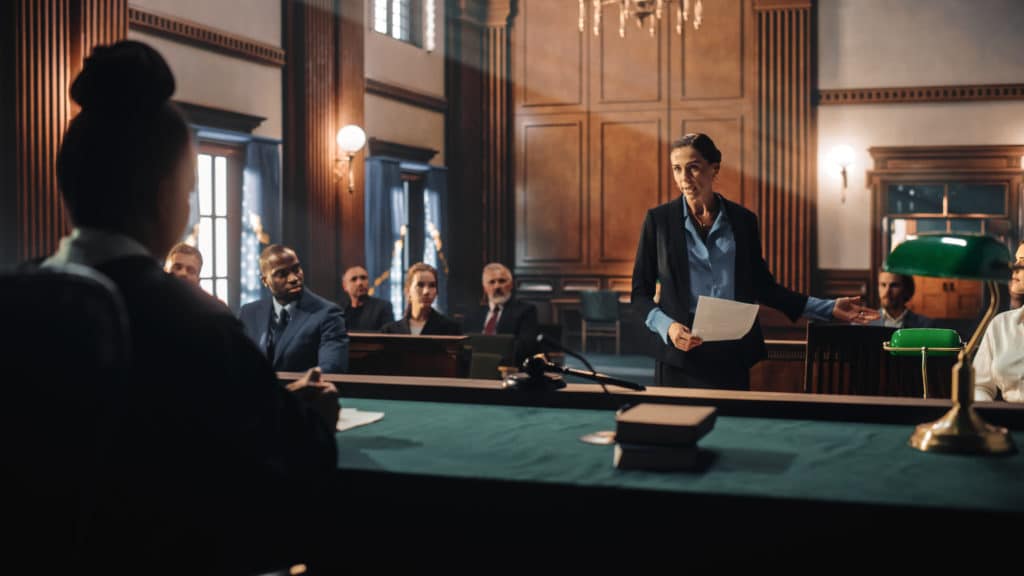Common Mistakes in Mock Trial and How to Avoid Them
You may have heard that only you get one shot at making a good first impression. In a trial, this is true. The mock trial is the perfect opportunity to prepare for your case, but you need to practice as if it is your only opportunity to get your case right. We look at common mistakes that are made in mock trials and what you can do instead.
Forgetting Important Elements in an Opening Statement
An opening statement can easily be mistaken for an opportunity to argue. In your opening statement, you shouldn’t explain why your evidence is better than your opponent’s or why your case theory is legit. These explanations are meant for your closing statement. A good opening statement is supposed to grab the audience’s attention and make them care about the case and the people involved.
Confusing the Audience
Mock trial opening statements need to grab the emotional appeal of the audience but they also have to be clear and concise. It is okay to write out your opening statement beforehand but if you write it out like an essay, you won’t be able to perform on your own. When your audience is listening they are processing one idea at a time, so you have to make your ideas clear and create connections between them.
Fail to Make the Audience Care
One of the most important elements in mock trial opening statements is setting an empathetic tone. Opening statements are the perfect opportunity to tell stories, but without giving an idea of who the characters are or explaining their emotions or motivations, it will be hard for the audience to care about these people that they do not know. You have to humanize your client and make their story personal and relatable, helping you gain empathy from the audience.
Lack of Witness Testimony
Witness testimony is one of the most important elements to include in a case. Without witness testimony, a mock trial is practically pointless. You need to be able to bring all helpful elements in a mock trial so you can be able to successfully prepare for the real deal. Verdict and damage decisions rely on witness testimony for the most part. All in all, witness testimony is especially essential for a defense counsel.
Not Presenting a Strong Enough Opposing Argument
The point of conducting a mock trial is to obtain viewpoints, varying aspects, and potential arguments that you may have not considered otherwise. In a mock trial exercise, the defense counsel presents both the plaintiff and defense cases, but this can lead to a common mistake: not presenting a strong enough opposing argument. This can happen for several reasons including that the attorney is playing the plaintiff not knowing the entire case. Ideally, you want to make it difficult for the opposing party so you can pinpoint where you can improve in your argument.
Fearing Test for Damages
Allowing the defense to evaluate the liability of damages with confidence will benefit the mock trial. While most cases will settle, a mock trial is helpful by providing real data upon which to make settlement decisions. To get the most useful insight, it is important to accurately predict damages. By doing so, you don’t have to fear how damages will be used against you.
Forcing a Theme
A theme should come naturally. It can be useful, but only if it fits with your story and your case theory. Your theme shouldn’t feel as if it has been crammed into your opening statement as an afterthought. Instead, you can use a theme if it deems helpful. You don’t want to change the story to fit a theme. Keep the story accurate and natural. If you cannot fit a theme in, don’t stress or worry about it. If you do use a theme, use it artfully and don’t refer to it too much. Keep it light and natural.
Not Establishing Credibility
One of the last elements that you should practice in a mock trial is to show your audience that you and your case are credible. Attorneys can easily get carried away by making overstatements or making promises that they cannot keep. Instead, don’t tell your audience that they’ll hear certain testimonies if they can be excluded from evidence. And most importantly, don’t be overdramatic. Keep statements about the evidence and the case, not about you. Be honest and give previews of how your weaknesses can be overcome.
Prepare with a Qualified Professional. Contact Jonathan Leach, LLC
With a professional trial consultant, you can expect your case to go your way. Contact us today to get started on the preparation of your case.

